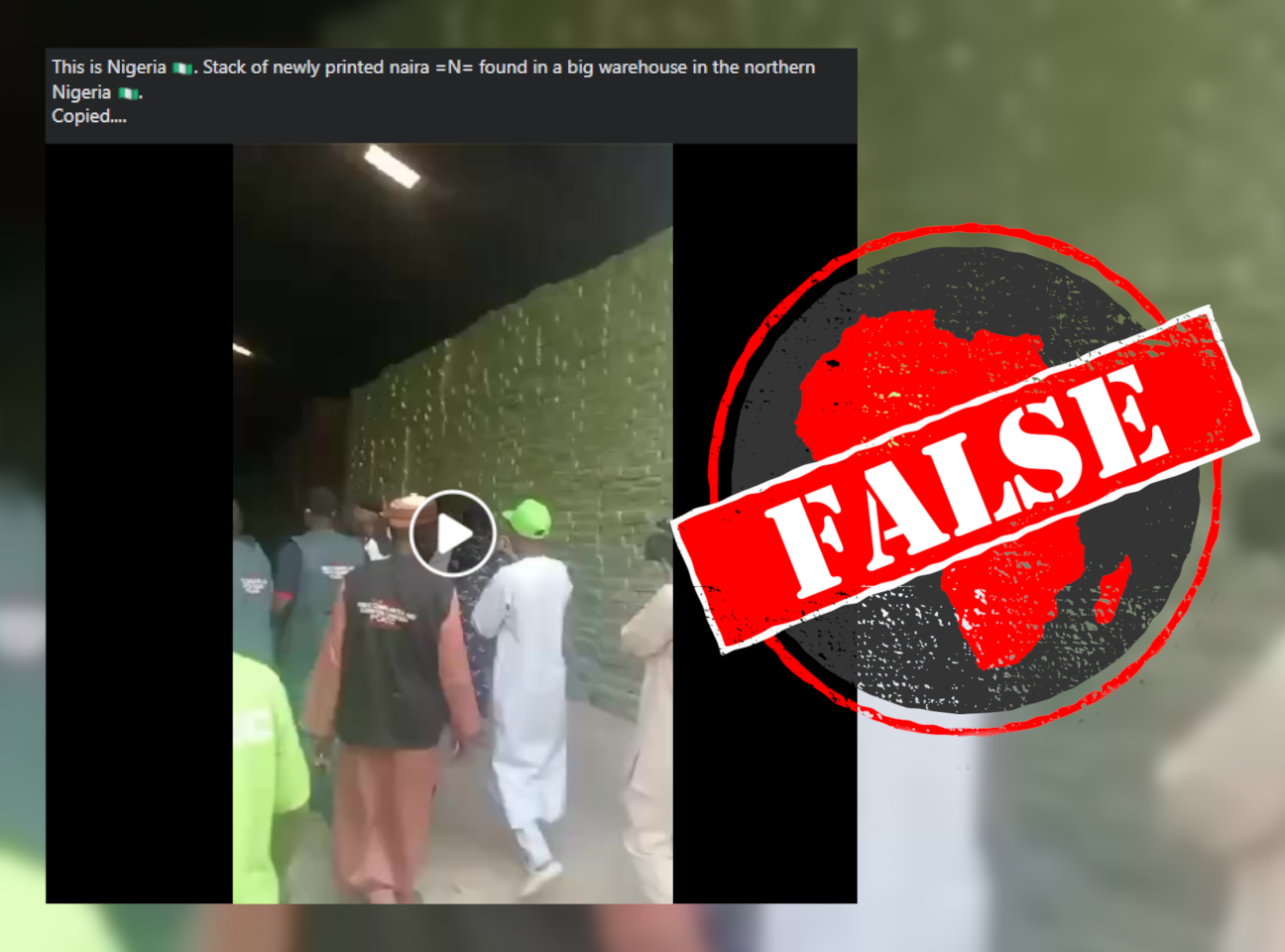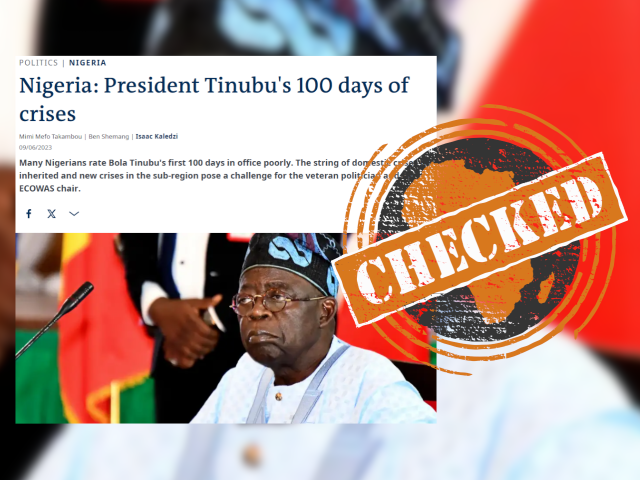IN SHORT: A video circulating on Facebook in Nigeria shows the Kano state’s anti-corruption commission raiding warehouses hoarding food. But no naira notes were found in a warehouse, as claimed on social media.
“This is Nigeria. Stack of newly printed naira =N= found in a big warehouse in the northern Nigeria,” reads a post on Facebook.
The 15 February 2024 post includes a 30-second video clip of people entering a building while filming with their mobile phones. The post has been republished over 4,300 times.
The rising cost of living, inflation, insecurity and the weakening naira have dominated public discourse in Nigeria, both online and offline, in early 2024. The country’s economic situation led to protests in some states in February.
The same claim and video can also be found here, here, here, here, here, here, here and here.
But does the video clip show newly printed naira notes found in a warehouse? We checked.

Warehouse hoarding food
We used Invid, a video verification tool that breaks up videos into frames and searches the internet for similar images, to find the origin of the video. It led us to a post dated 13 February 2024 on Nairaland, a popular Nigerian forum.
The post claims that a Kano state agency raided a warehouse where food was being hoarded. We found another post with the same video and claim of food hoarding on Instagram.
We then entered some keywords from the posts and found media reports about the Kano state anti-corruption commission’s crackdown on warehouses hoarding food.
We also found a longer and clearer version of the video on the agency’s Facebook page.
On 15 February, president Bola Tinubu met with state governors to discuss the food crisis in the country. Before the meeting, the president ordered the immediate release of 42,000 tonnes of grain from reserves to ease the pressure on cash-strapped Nigerians. Hoarding food can contribute to price increases and supply shortages.
Sharing such videos about the currency could cause panic among Nigerians and potentially lead them to make financial decisions based on misinformation.
Republish our content for free
For publishers: what to do if your post is rated false
A fact-checker has rated your Facebook or Instagram post as “false”, “altered”, “partly false” or “missing context”. This could have serious consequences. What do you do?
Click on our guide for the steps you should follow.
Publishers guideAfrica Check teams up with Facebook
Africa Check is a partner in Meta's third-party fact-checking programme to help stop the spread of false information on social media.
The content we rate as “false” will be downgraded on Facebook and Instagram. This means fewer people will see it.
You can also help identify false information on Facebook. This guide explains how.



Add new comment